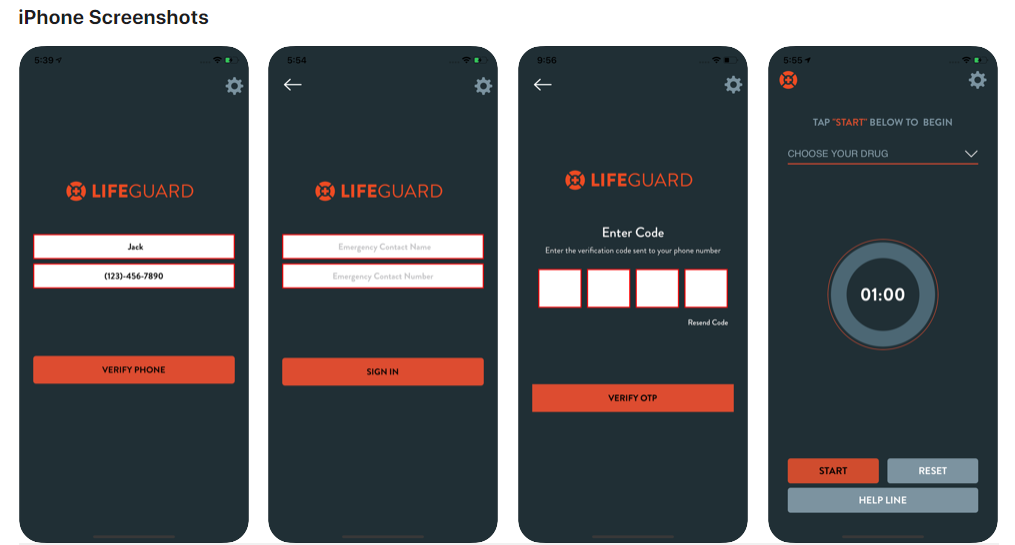A new, potentially life-saving app for people experiencing drug addiction is being rolled out province-wide, and launched in the Interior Health Authority (IHA) on Monday.

The new made-in-B.C. resource is called the Lifeguard App, and is free to download through the App Store and Google Play.
The app is activated by the user before they take their dose of drugs.
After 50 seconds the app will sound an alarm. If the user doesn’t hit a button to stop the alarm, indicating they are fine, the alarm grows louder.
After 75 seconds a text-to-voice call will go straight to 911, alerting emergency medical dispatchers of a potential overdose.

“The launch of this new resource couldn’t have come at a better time,” said Judy Darcy, Minister of Mental Health and Addictions.
“As we face down two public health emergencies – the overdose crisis and the COVID-19 pandemic – we must ensure that people who use drugs have the resources they need, when and where they need them.”
The province says the majority of people who use drugs use alone in shelters, hotels or at home.
Susan Wannamaker with the Provincial Health Services Authority says the app is designed for those at highest risk of an overdose- people who use alone.
The app has been two years in the making as developers tested and piloted the technology in controlled environments before it was released to the public.

People who use drugs are still encouraged to use with a friend and to use overdose prevention services and supervised consumption sites where they are available.
While B.C. has been successful at curbing the spread of COVID-19, new statistics reveal the other ongoing public health emergency in the province may be worsening.
Recently released data from the BC Coroners Service showed 113 people died from a suspected drug overdose in March. Exceeding 100 deaths in a month has not occurred since March 2019.
The number of fatalities represents a 61 per cent increase over the number of deaths in February.
Between January and March, 46 people in the Interior Health region lost their lives because of an overdose.
Non-fatal overdoses are also on the rise in the Okanagan region.
Penticton generally averages about 21 non-fatal overdose calls a month. In April, Penticton more than doubled that number.
“It was a significant spike in paramedic response to potential overdoses in the community,” BC Emergency Health Services (BCEHS) said in an email.
Vernon and Kelowna are also recording slightly above average overdose calls. Paramedics responded to 27 non-fatal overdoses in Vernon last month. The average is 20 calls.
Kelowna generally averages 72 overdose calls per month, and recorded 87 in April.
BCEHS says an overdose patient will survive 99 per cent of the time when paramedics are called.
- Buzz kill? Gen Z less interested in coffee than older Canadians, survey shows
- Naloxone-resistant street drug linked to 9 deaths in Eastern Canada seized in Alberta
- Bird flu risk to humans an ‘enormous concern,’ WHO says. Here’s what to know
- ‘She gets to be 10’: Ontario child’s heart donated to girl the same age




Comments